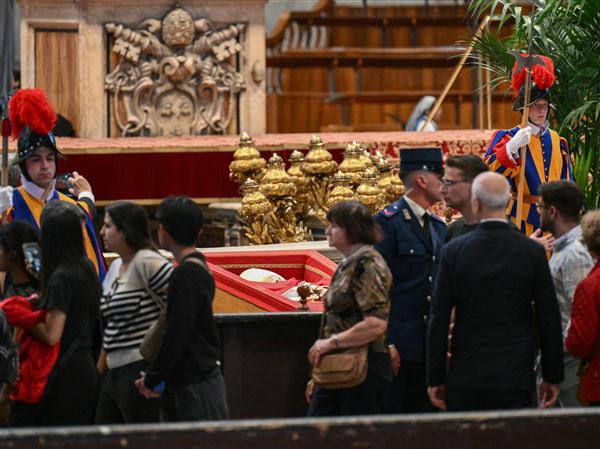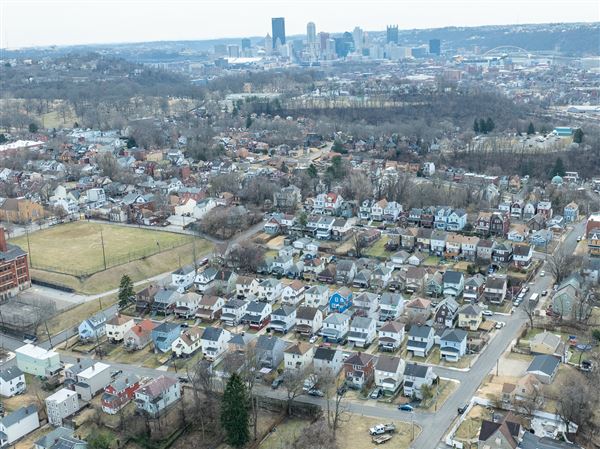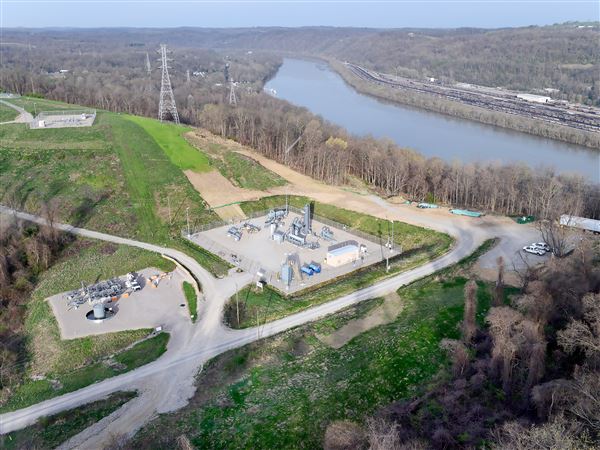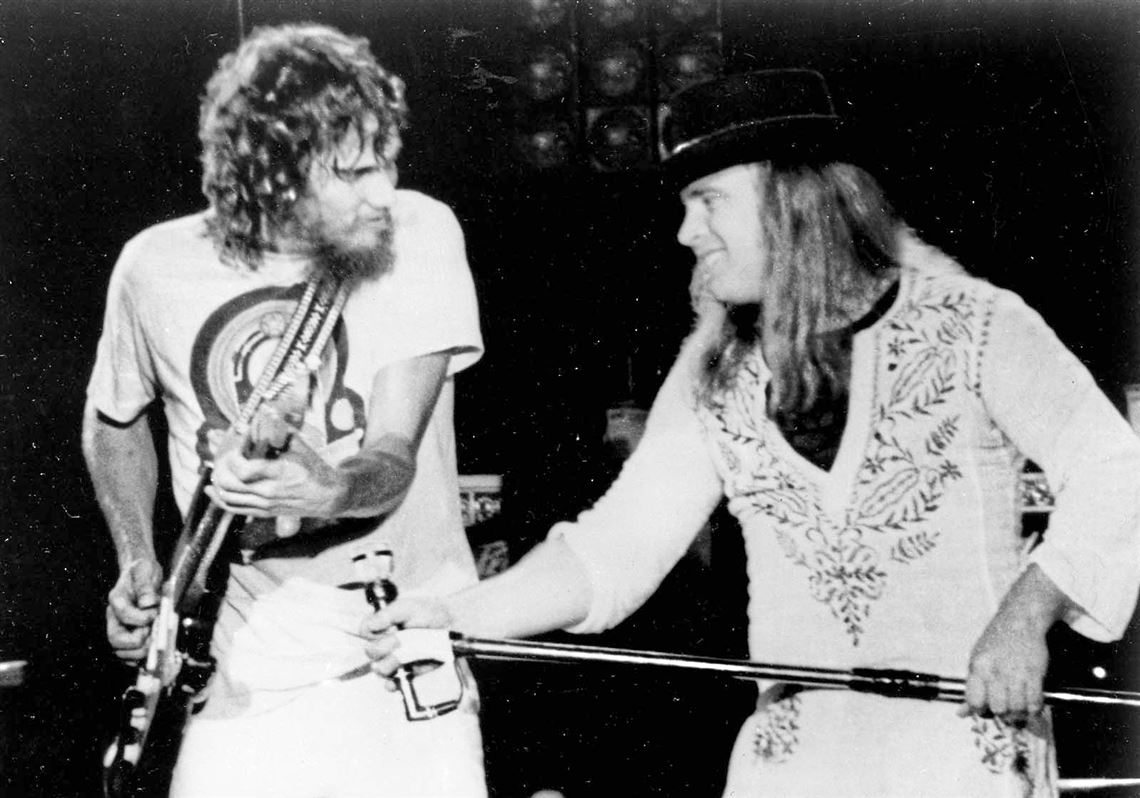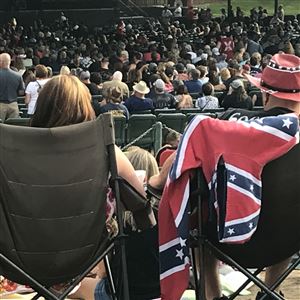The classic ’70s lineup of Lynyrd Skynyrd had almost as many cancellations and mishaps in Pittsburgh as it did shows.
The debut here was supposed to be epic. The Southern-rock legends, who will call it a career with the Last of the Street Survivors Farewell Tour on Saturday at the KeyBank Pavilion, were set to debut here at Three Rivers Stadium on Aug. 31, 1974 with the Doobie Brothers and Chicago.
Skynyrd was still a newcomer to the scene, having debuted in the summer of 1973 with “Pronounced 'Leh-nerd 'Skin-nerd,” but the guys were rough and ready, with more than a thousand shows under their belts. Although the album didn’t rocket up on the charts, it was stocked with such future FM classics as “Tuesday's Gone,” “Gimme Three Steps,” “Simple Man” and a little thing called “Free Bird” that ran more than nine minutes.
Oddly, the band had landed a slot on The Who’s Quadrophenia tour in 1973, which wasn’t going so well for The Who because it was using backup tapes that weren’t syncing up, and fans weren’t all that into that album anyway. By contrast, Skynyrd, taking its cue from the Allman Brothers and going a few steps further, was just a straight-up, hell-raising Southern rock ’n’ roll band with a Confederate flag backdrop.
In April 1974, the band released “Second Helping,” which, on the insistence of MCA, was led by the single “Don't Ask Me No Questions.” It bombed. And then the band got its way, and a second single was released: “Sweet Home Alabama,” the band’s tongue-in-cheek response to Neil Young’s “Alabama.” Now a virtual anthem, it became the band’s highest-charting single at No. 8.
That was the setup for Skynyrd’s first Pittsburgh show on the bottom of the Doobies-Chicago bill. Skynyrd surely would have made that show a rowdier affair, but the band canceled due to illness and was replaced by the Ozark Mountain Daredevils.
The Pittsburgh debut was put off until the next year when Skynyrd was touring in support of the disappointing follow-up “Nuthin’ Fancy,” most memorable for its opening song, “Saturday Night Special.” In the bizarro world of ’70s music, “Free Bird” was issued as a single in November ’74 and was peaking on the charts in January ’75, a year and a half after it first appeared on an album.
In his Skynyrd bio, John Swenson describes the so-called “Torture Tour” as being filled with “drunken performances, cancellations, and fistfights between the band and just about anyone else (even fellow band members).”
“We were doing bottles of Dom Perignon, fifths of whiskey, wine and beer...We couldn't even remember the order of the songs,” Ronnie Van Zant said. “Some guy crouched behind an amp and shouted them to us. We made The Who look like church boys on Sunday. We done things only fools’d do.”
On May 27, 1975, the tour rolled into Pittsburgh for a show at the Syria Mosque with Golden Earring. It was that night that guitarist/bassist Ed King, who had come to Skynyrd from the Strawberry Alarm Clock, abruptly left the band.
“I’m the hippie from Southern California. I’m not digging the violence part,” King, who died Wednesday at 68, said in the new documentary “If I Leave Here Tomorrow: A Film About Lynyrd Skynyrd. “Ronnie and my guitar roadie who changed my strings were thrown in jail in Ann Arbor. They didn’t arrive … until 10 minutes before we went on. I had to play on old strings and I broke two strings during ‘Free Bird.’ After, Ronnie was riding me, and a lightbulb went off and I said, ‘That’s it.’ I went back to my room, packed up my stuff and left.”
“Gimme Back My Bullets,” the band’s fourth album, released in February 1976, was its least successful of that era, and, in fact, the band had to stop playing the title track because people were throwing .38 shells at the stage. The song was actually about bullets on the Billboard chart. But, between “Free Bird” and “Sweet Home Alabama,” Skynyrd was big enough to play the Civic Arena on April 17, 1976, paired with The Outlaws and Steve Marriott’s All-Stars.
That was a great year for live albums — “Frampton Comes Alive,” Led Zeppelin’s “The Song Remains the Same,” Bob Seger and the Silver Bullet Band’s “Live Bullet,” among them — and Skynyrd’s “One More from the Road,” with its more sizzling versions of the songs recorded at the Fox Theatre in Atlanta, hit the spot on FM radio. The band’s one triple-platinum album (aside from the hits compilations), it came out October 1976 and Skynyrd turned up at the Civic Arena on Dec. 27 with the Charlie Daniels Band. Incidentally, it was four days before Elvis Presley played his final show here that New Year’s Eve. He died the following August.
The only report on any of those three Skynyrd shows was a news item that December in the Pittsburgh Press that police arrested 29 people outside the arena, mostly on intoxication and disorderly conduct charges. That was eight more people than were arrested at the Black Sabbath/Ted Nugent show there a few weeks earlier, so violence and mayhem at Pittsburgh concerts was becoming a thing.
The story noted, “The commotion apparently started after tickets were sold out to the concert of Lynyrd Skynyrd 10 minutes before the 8 p.m. show was to begin. It was the second appearance of the rock group in Pittsburgh and attracted a packed house of 17,000 fans from as far away as West Virginia and Ohio.”
That would be code for outsiders. I was there as a 15-year-old city kid who just started going to concerts and can attest that with the awesome triple-guitar assault, Billy Powell’s piano boogie and Mr. Van Zant’s rugged command, it was the pure Southern-rock nirvana you’d expect it to be.
The most memorable part, for me, happened right after the show, outside the Chatham Center hotel across the street from the Civic Arena. My friends and I were waiting for a ride — our parents, not Uber.
A black limo pulled up and when the rear door opened, a bottle of Jack Daniels spilled out, followed closely by Mr. Van Zant, whose reputation as a mean, brawling drunk was legendary. It was just us and them, and in the heat of the moment I made the decision to holler out, “Skynyrd’s No. 1!” even though I probably liked Kiss and Led Zeppelin better.
Mr. Van Zant, in all black with the signature black cowboy hat, walked over to me and said, “Son, the Beatles are always No. 1. Don’t you forget that.” To this day, when I think about how artists build on their influences without always sounding like them, I think about that moment.
The final concert in Pittsburgh with the classic lineup was set for July 16, 1977 at Three Rivers Stadium with headliner Aerosmith, touring on the “Draw the Line album,” and opener Nazareth. About two weeks before the show, a small ad appeared in the newspaper: “Canceled.”
It was one of three concerts that summer — along with Emerson, Lake and Palmer and Peter Frampton — nixed due to slow sales. Promoter Danny Kresky told the Pittsburgh Press that, “It seemed to us that the people of Pittsburgh were not interested in stadium concerts any longer.”
Imagine that.
Both bands were rescheduled for arena dates that fall, but neither one made it. Aerosmith canceled the Oct. 14 show with Styx when Steven Tyler suffered an eye injury from a firecracker thrown by a fan in Philadelphia.
Skynyrd released its fifth album, “Street Survivors,” on Oct. 17, 1977 and and three days later the band boarded a Convair CV-240 from Greenville, S.C., to Baton Rouge, La. Earlier in the year, Aerosmith nearly rented that same plane but decided not to due to safety concerns about the craft and the crew.
Running low on fuel and plagued by a mechanical problem, it crashed in a Mississippi forest while attempting an emergency landing, killing the 29-year-old Van Zant, who often said he would die before 30, Steve Gaines, backup singer Cassie Gaines (his sister), their assistant road manager and the two pilots. Mr. Powell, Allen Collins, Gary Rossington, Leon Wilkeson and Artimus Pyle, along with backup singer Leslie Hawkins, all suffered serious injuries. Mr. Powell, who died in 2009, was the only one on his feet, with crutches, able to attend the funerals.
Skynyrd went silent for a decade, kept alive by stations like WDVE, before making the controversial decision to honor the band’s legacy with the Tribute to Lynyrd Skynyrd Tour, which played the arena on Oct. 4, 1987. It was fronted by Mr. Van Zant’s then-27-year-old brother Johnny with four of those survivors. As part of a plea deal on a manslaughter DUI charge in 1986 car accident, Collins, who was paralyzed in the accident, made appearances in a wheelchair to speak on those same dangers discussed in the song “That Smell.”
What was intended to be a one-off has lasted now for another 31 years and nine albums, right up to this tour, which finds Mr. Van Zant with guitarist Rossington, wife and backup singer Dale Krantz-Rossington and former Blackfoot guitarist Rickey Medlocke, among others.
“It’s hard to imagine, after all these years, the band that Ronnie Van Zant, Allen Collins and myself started back in Jacksonville, would resonate for this long and to so many generations of fans. I’m certain they are looking down from above, amazed that the music has touched so many,” the 66-year-old Rossington said in a statement.
It’s going to be a long goodbye, taking up to two years to reach all the places they want to visit, he told Billboard.
“My health isn't very great, so it’s harder for me to tour these days, and everyone's got kids and families and grandkids now. So we're just gonna kick back a little bit because of our age, and I just want to go out on a high note and make sure the band's name stays in high regard instead of going out and playing fairs and casinos and things like that. I want to live it still filling arenas and sheds like we still can."
Scott Mervis: smervis@post-gazette.com
LYNYRD SKYNYRD
With: Hank Williams Jr., .38 Special, The Marshall Tucker Band.
Where: KeyBank Pavilion, Burgettstown.
When: 6 p.m. Saturday.
Tickets: $44-$259; ticketmaster.com.
First Published: August 21, 2018, 4:40 p.m.

